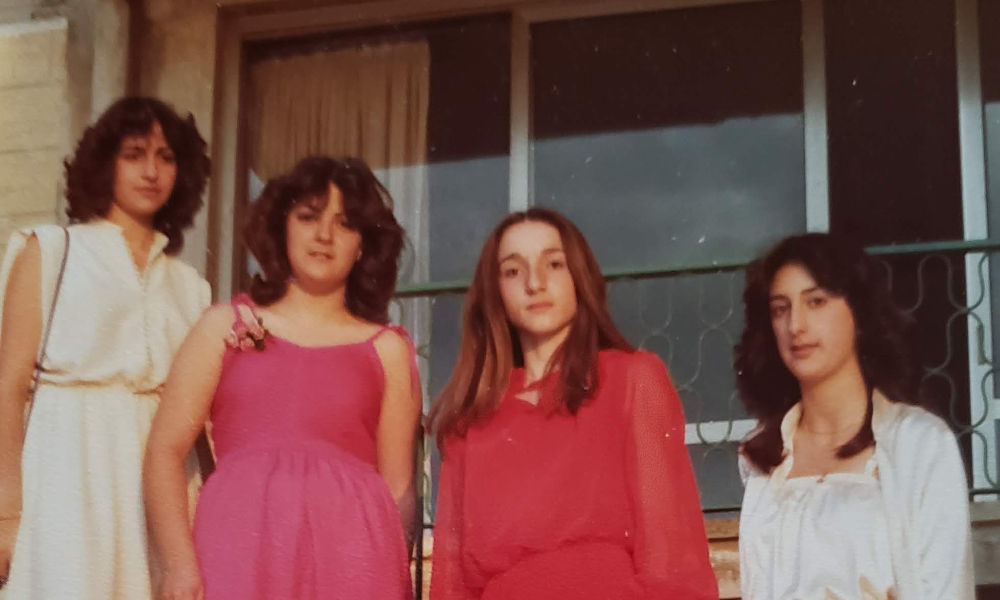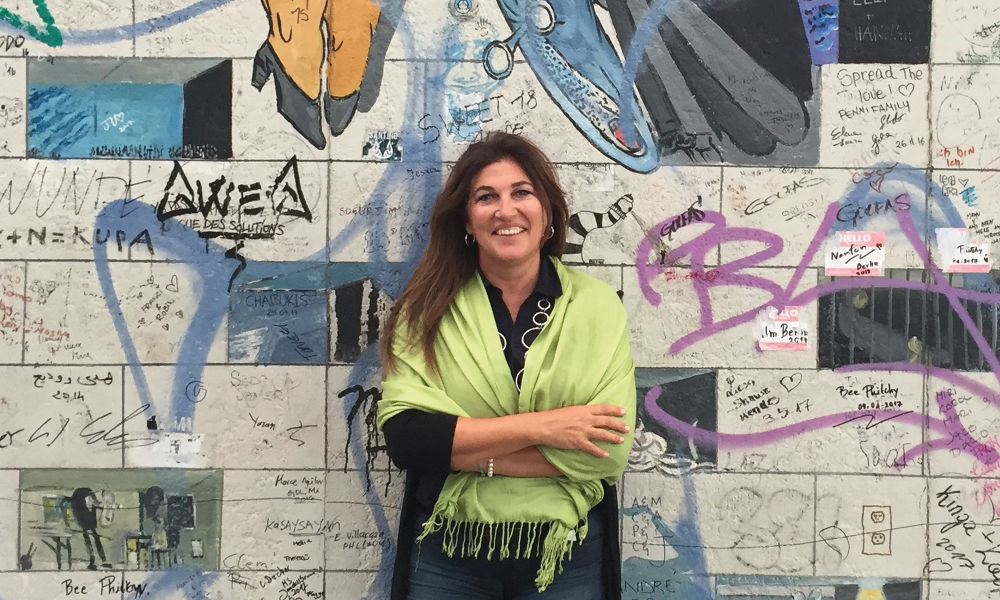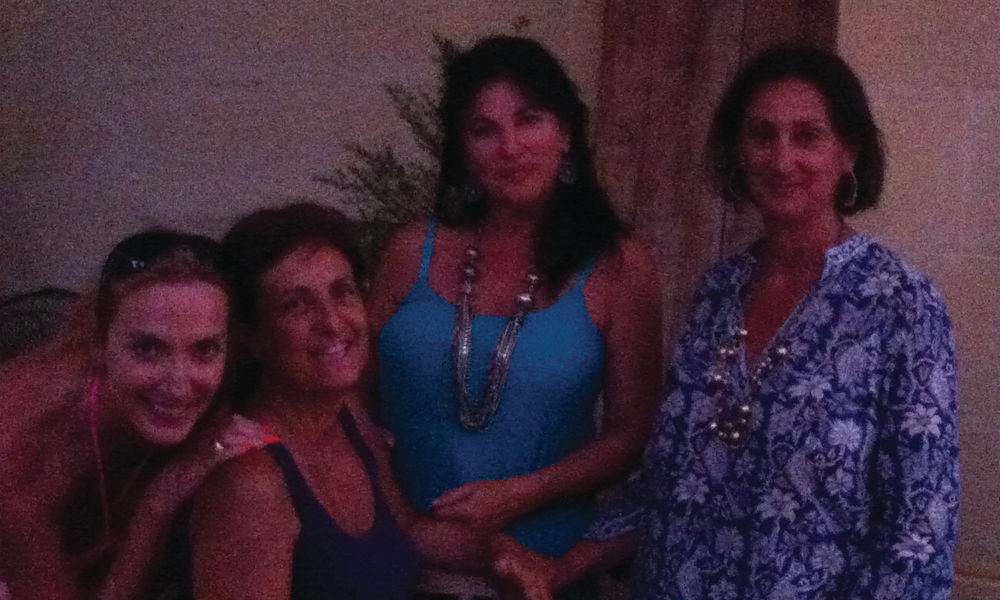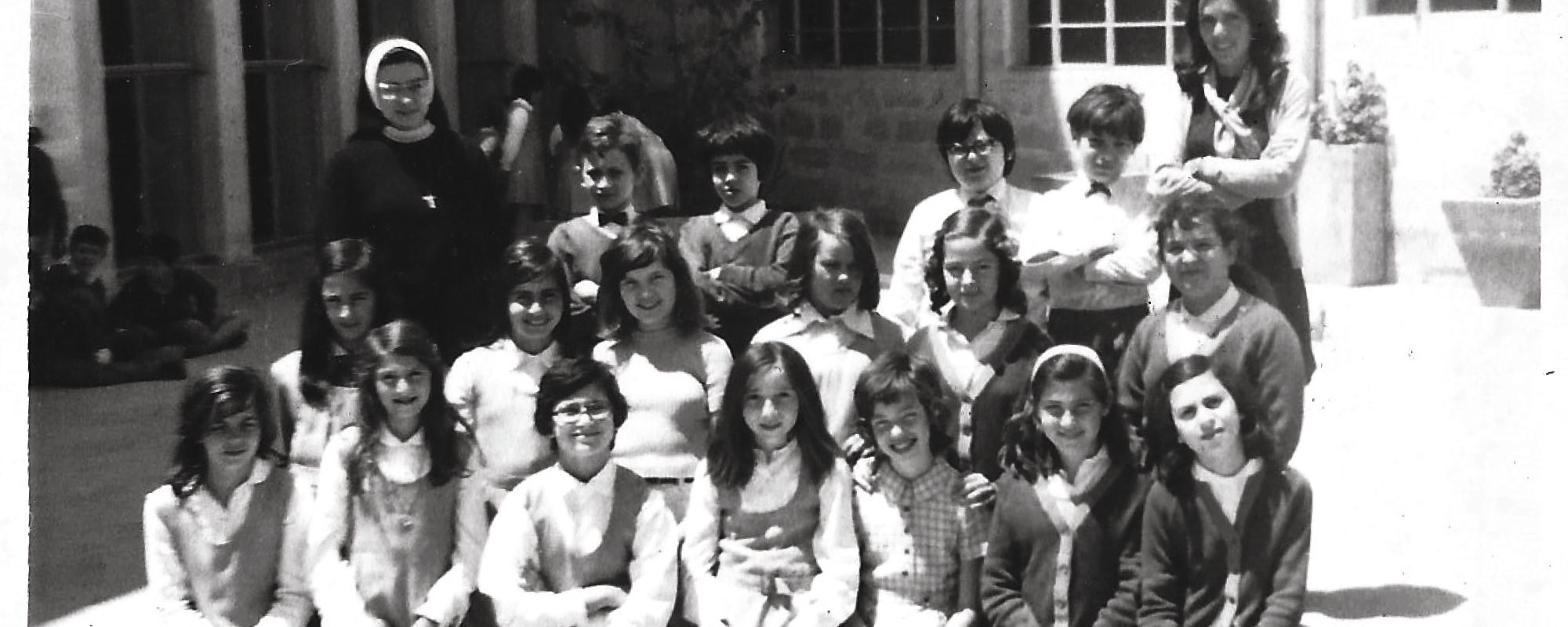She is hated by people who didn’t know her. She is also hugely admired by people she didn’t know. Prof. Clare Vassallo shares a deeply personal tribute to world-renowned murdered journalist Daphne Caruana Galizia.
Dehumanised, stripped of love and laughter, a face, a name, a symbol held up high and made to stand for various battles — my childhood friend is being transformed into a sign, a thing that stands for something else. For me, she is someone real who I knew and who I miss. Someone whose voice still rings in my ear with the odd funny and clever comment.
Daphne Vella, as she was known when I first met her at school in Infants A at age 3, was my first school friend. We were tiny then, standing against the wall in the large, loud ‘double-room’ full of children taller than us, busy running around, shouting and playing, overpowering us. She was always tall and very slim, with straight dark hair tied in bunches, as was my lighter wavy hair.

In Infants A and all the way to Junior 5, we forged a tight group of school friends at St Dorothy’s School in Depiro Street, Sliema. Friends who all lived within walking distance of the school and from each others’ houses. Simone, Iona, Gladys, Stephanie, Doreen, Carole and Clare (always said in the same breath so people often didn’t know who was who — and some still don’t), and Daphne. We started a book club. By the age of seven we were all avid readers of Enid Blyton’s Secret Seven and The Famous Five adventures, as well as many other authors such as L. M. Alcott. We pooled our books so we could all share them. Sometimes we kept them in Daphne’s bedroom, probably because she was President of our club (and I was Vice President).
We liked our comics too. And the special Annuals that came out at Christmas — there was so much to read in them. Stories, travel, puzzles, quizzes — there were Ballet Annuals too, and all other sorts. Eventually we moved on to Jackie and Pink. When we were about nine years old, we were allowed to walk down to the Ferries together on Saturday mornings to buy them from Morris or Manche’s stationaries on Tower Road. We’d meet at the top of Cathedral Street near Stella Maris Church and walk down together. Sometimes we’d go on to Allies Bar for a Coke and a cheesecake. Francis Ebejer was often there, sitting on those dark curved wooden chairs outside in the sun.
This is Daphne as I remember her. The girl who was funny, clever, witty, and perhaps not so wise — since she seemed to have a knack, as she grew older, of upsetting most of her teachers and anyone in authority. But the teachers had to admit that she could write, and very well. I vividly remember a little incident when we were nine or ten years old and shared a double-bench for the year when, just a few moments before we sat for a test, she passed a tightly folded piece of paper to me. I opened it and found she’d drawn, in bright beautiful colours, a pair of wings in flight with the words ‘Hope you pass with flying colours!’ Literalising the metaphor. Working with language. So clever. So Daphne.

After we moved to secondary school in Mdina, we were rarely in the same class, and slowly we started spending more time with other school friends. We’d meet in summer at Ferro Bay or Fond Għadir for a swim, but slowly other things took over. Eventually, and quite soon, Daphne was married to Peter and became a mother to her three lovely boys, Matthew, Andrew, and Paul, before I’d even got married myself. Our lives increasingly took different paths as I spent more time away on my studies and various other adventures.
So, the years passed. Growing up together had created a connection and a deep friendship, an affection which remained. We connected again years later and we spent time on the phone talking through things. Then we started seeing each other again, meeting up for lunches with a different group of women — Pippa, Glorya, Petra — at regular intervals a few months apart.
Daphne was always working hard on her beautiful magazines on home, food, and travel — always in full glorious colour on high quality paper. Often she joined us a little late as she’d be busy putting an issue to bed. Our conversations were varied — so many interests we had between us, so many loved ones, children and families and friends and travels. We spoke politics too. Of course we did. We didn’t agree on everything; we all had different angles on issues and that made the discussion all the more engaging and kept us going well into the afternoons fuelled by some large G&Ts, and great food washed down by good wine.

The adult Daphne was a private person, a woman often stared at and made to feel ill at ease and a little awkward at large public gatherings. A woman full of a passion for beauty, for friendship and love. Also for truth and justice, and for this country to become the best version of itself.
But people didn’t understand that what she wanted was for Malta to be a better place. They attacked her in many different ways. Then she started talking about spending time away from Malta — her three boys lived abroad and she visited them frequently. I wish she’d left when she said she would.
One of the last times I was with her was one of her happiest. Her second son, Andrew, was getting married. She was dressed in brilliant pink and gold — fabric she’d brought with her from India, where Andrew was posted as a diplomat in the Maltese Foreign Service. A number of Junior School friends from the Book Club days were there, and we have a photo of us — all smiles, all getting older, most of us no longer very slim — but happy, looking to the future, seeing our children grow up and take their places in the world, places they’d worked hard to achieve on their own merits.
Then came that call from my son Max, who was living in the US. He’d heard before I did and phoned immediately with shock and panic ringing in his voice. ‘Daphne, ma, Daphne, they did it…!’
They killed my friend. They tore her apart.
This is the Daphne I knew: a warm, kind, funny, and ferociously clever woman in a country that doesn’t like its women that way.
That stubborn, hard-headed, not-so-wise trait in her character would not let up. There was too much to say — and no one was saying it. Sources would pass on information while keeping themselves safe and anonymous. They went to her instead of the newspapers, because newspapers did not follow up on hints of stories as they should have. As she did. She took it on. All of it. Too much.
Goodbye my friend.
Two years, and counting.





Comments are closed for this article!